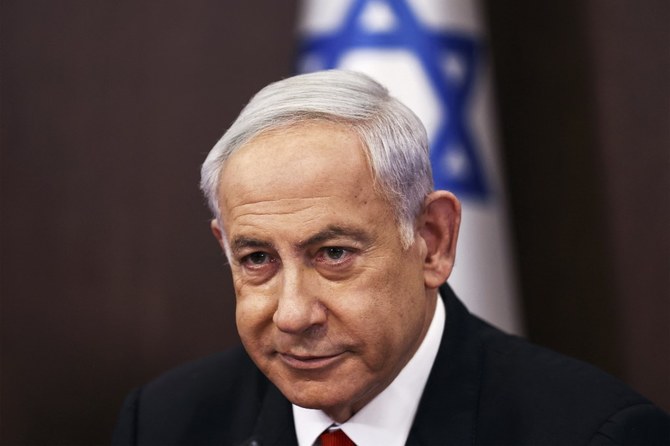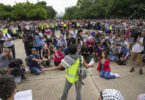Dr. Dania Koleilat Khatib
Tensions between Lebanon and Israel are peaking once again. The Israeli defense minister last month showed a picture of an alleged Iranian airport in the south of Lebanon that he said was being used “for terror purposes” against Israelis. Though no action was taken, the tension is very high on both sides. The fact that neither side actually wants a war does not mean that one will not break out. One faux pas can lead to war and this is why it is imperative to have a deconfliction mechanism.
Wars are not necessarily always a conscious and voluntary decision. The First World War, for example, was effectively caused by a single assassination. Tensions at the time were so high because of the competition between states, especially regarding colonies, that this act escalated into a world war. Something similar could happen in Lebanon. The 2006 war was not planned, but tensions were high in Lebanon after the assassination of former Prime Minister Rafik Hariri, with Syria and its ally Hezbollah in the spotlight. In Israel, Prime Minister Ehud Olmert wanted to outperform his predecessor, Ariel Sharon, on national security. This is why Hezbollah’s kidnapping of two Israeli soldiers on the Blue Line, which otherwise could have been contained through indirect negotiations, led to all-out war. Even Hassan Nasrallah, the head of Hezbollah, later admitted that the war took the group by surprise.
One might argue that the situation is different now, as we have the UN mission in the south of Lebanon that is supposedly ensuring peace between the two countries. However, the presence of the UN Interim Force in Lebanon is not enough. UNIFIL does not have control over Hezbollah and it does not have direct communication with the group. Hence, if an unfortunate act like the kidnapping of two Israeli soldiers happened again, it would be taken by surprise just like everyone else.
This is why a deconfliction mechanism is needed. Deconfliction is not a process established with a friend, but rather a process one uses to prevent a clash with an enemy. For sure, Israel and Hezbollah do not want to talk to each other. Israel considers the group to be “terrorist,” while Hezbollah describes Israel as “Satan” and calls for its death during Friday prayers. Its legitimacy is based on animosity toward Israel and the degree to which it is truthful about it.
So, how can this dilemma be solved? Each party needs a guarantor and a deal should be established between the guarantors. It is important to note that both Hezbollah and Israel have had an unofficial agreement brokered by a guarantor before. The April Understanding was an indirect 1996 agreement mediated by the US to end the Israeli operation on Lebanon known as Grapes of Wrath.
The Lebanese army has a channel of communication with Hezbollah and, as long as the political powers accept the group, the army has to deal with it. It can use its communication channel to make sure the group is contained. On the other side, the Americans can be the guarantor for the Israelis. In this setup, the Lebanese army liaises with Hezbollah and the Americans liaise with the Israelis. The US and the Lebanese Armed Forces would also hold regular briefings to make sure that the southern front in Lebanon and the northern front in Israel were quiet. This is necessary, as neither country wants a clash to take place.
Also, the maritime borders have been agreed and both countries are keen to benefit from the Mediterranean gas fields. Israel has already started extracting gas, while a drilling rig arrived in Lebanese waters last month to start exploration. This means both countries have an interest in establishing a deconfliction mechanism that will prevent any unplanned war.
For Hezbollah, the situation today is different to 2006. The group will probably not get the support it received from the different factions of society back then. Regionally, it is unlikely that Arab nations will pour money in the same way they did in the aftermath of the July war. So, the group knows that, this time, the war will be lethal.
But it will not only be deadly for the group – it will also be a knockdown blow to the entire country. Lebanon’s state institutions are crumbling and they cannot absorb the shock of an Israeli strike the same way they did in 2006. The international community, especially Europe, does not want to see Lebanon broken up and waves of refugees making their way across the Mediterranean.
As for Israel, its society is now more fractured than ever. Does Prime Minister Benjamin Netanyahu want war? Not really, especially now that he is trying to play nice with Arab states and progress the normalization process. Though a war might momentarily create a rally round the flag effect, it would soon create yet more divisions. Netanyahu would also be subjected to the same pressure that was exerted on Olmert to resign in the aftermath of the 2006 war. The difference today is that Netanyahu is in an even more precarious situation than Olmert was. Therefore, despite the narratives, both parties need this deconfliction mechanism. Everyone needs calm on the Lebanese-Israeli front. This means it is up to the US to initiate such a process and for the Lebanese army to follow up on it.







